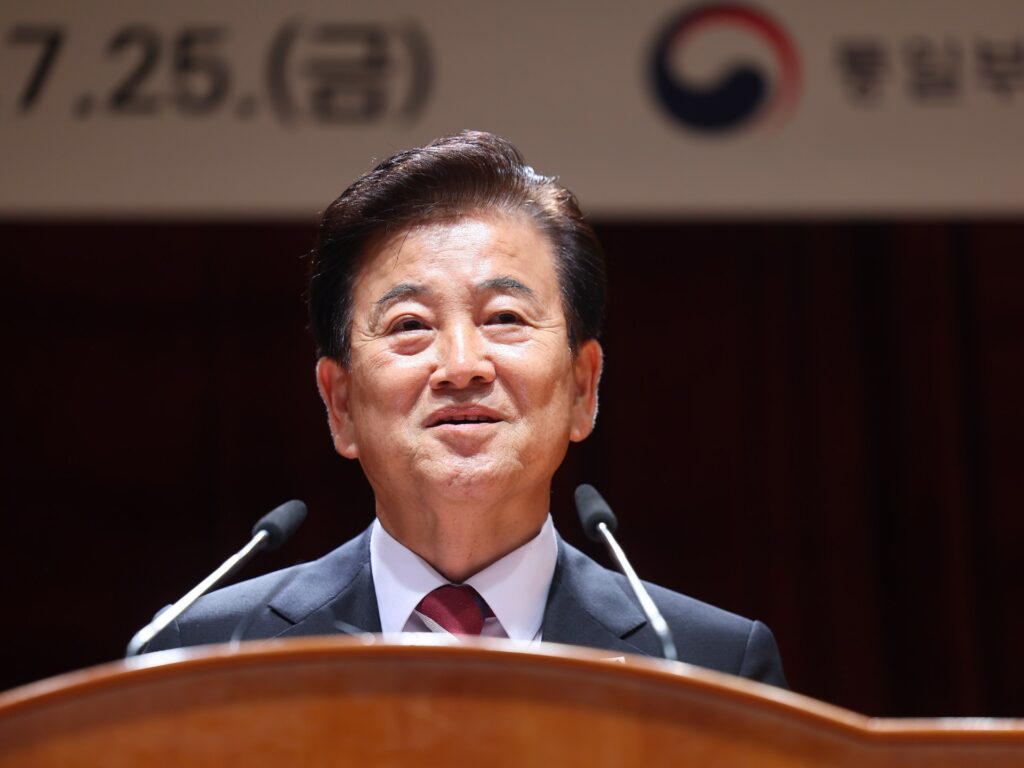South Korea reports Pyongyang building up enriched uranium supplies, insists ‘stopping’ its nuclear development ‘urgent’.
Published On 25 Sep 2025
North Korea is believed to have accumulated large quantities of weapons-grade uranium, according to South Korea.
Seoul’s Unification Minister Chung Dong-young on Thursday cited an assessment that Pyongyang possesses 2,000kg (about 4,400 pounds) of highly enriched uranium “at a purity of 90 percent or higher”.
Recommended Stories
list of 3 itemsend of list
If confirmed, the amount would also signal a sharp increase in North Korea’s stockpile of nuclear material.
Intelligence provided by civilian experts reveals that North Korea is operating four enrichment plants, he added.
“Even at this very hour, North Korea’s uranium centrifuges are operating at four sites,” Chung told reporters, only mentioning the known site of Yongbyon, which Pyongyang purportedly decommissioned after talks but later reactivated in 2021.
Foreign experts believe North Korea has built additional uranium-enrichment sites as leader Kim Jong Un has been pushing hard to expand his nuclear arsenal.
The North has long been known to hold a “significant” amount of highly enriched uranium, the key material used to produce nuclear warheads, according to South Korea’s defence ministry.
Enrichment must be pushed to more than 90 percent, the concentration termed weapons-grade, to ensure that the critical mass sets off the chain reaction leading to a nuclear explosion.
According to the International Atomic Energy Agency (IAEA), 42kg (92.6 pounds) of highly enriched uranium is needed for one nuclear weapon; 2,000kg would be enough for roughly 47 nuclear bombs.
Chung said “stopping North Korea’s nuclear development is an urgent matter”, but argued that sanctions will not be effective and that the only solution lies in a summit between Pyongyang and Washington.
International diplomacy on ending North Korea’s nuclear programme has stalled since 2019, when high-stakes summitry between Kim and United States President Donald Trump fell apart without any agreement.
Kim said recently that he was open to talks with the US as long as the demand that the North surrender its nuclear arms remains a condition.
North Korea, which conducted its first nuclear test in 2006 and is under a raft of United Nations sanctions for its banned weapons programmes, has never publicly disclosed details of its uranium enrichment facilities.
South Korea’s President Lee Jae Myung, who took office in June, has promised a more dovish approach towards Pyongyang compared with his hawkish predecessor, Yoon Suk-yeol, saying he will not seek regime change.
Chung said, by designating Pyongyang as the “main enemy” and insisting on denuclearisation first, the previous administration had effectively allowed North Korea’s nuclear capabilities “to expand without limit”.
